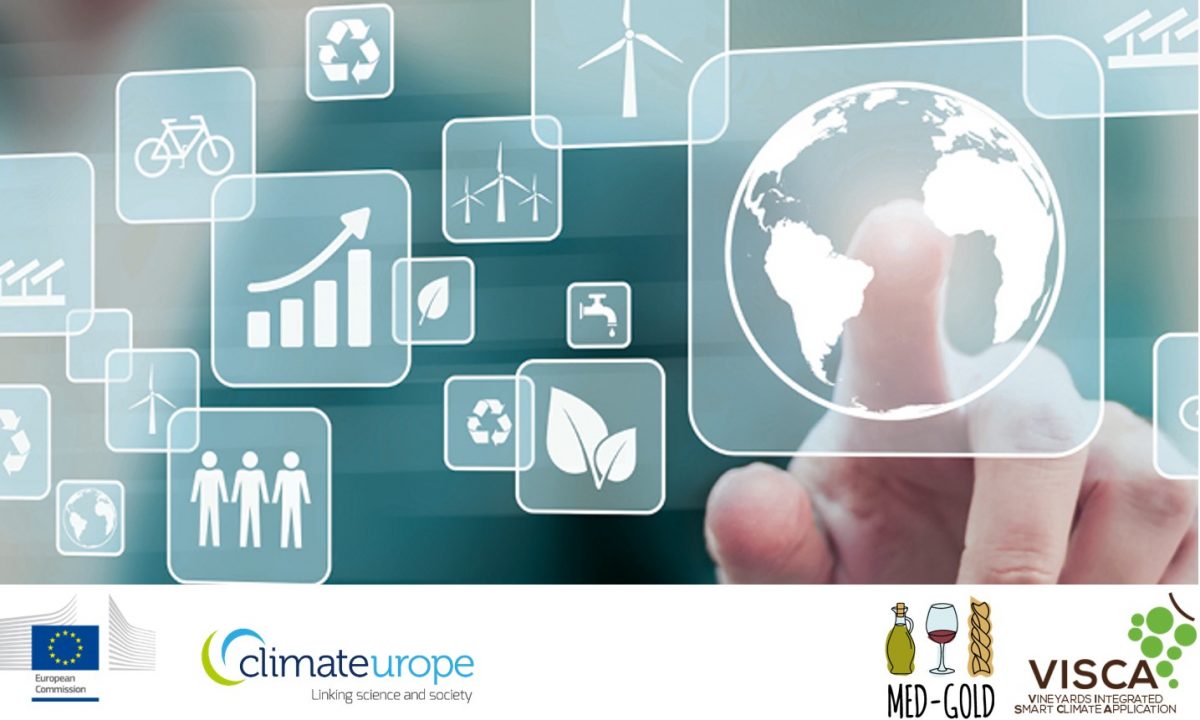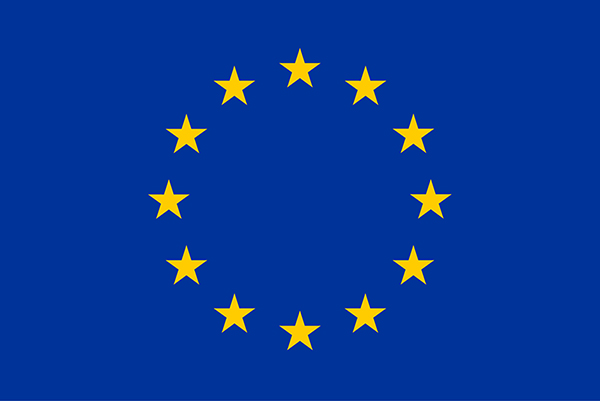Il 2 dicembre 2020 la Commissione Europea ha organizzato un evento sul tema “Servizi climatici per un’Europa resistente al clima”. In questo evento, i progetti MED-GOLD e VISCA hanno animato la sessione “Come possono i servizi climatici sostenere l’adattamento ai cambiamenti climatici in agricoltura?
I servizi climatici possono fornire informazioni e conoscenze sul clima ad un vasto pubblico, comprese le imprese, i decisori politici e il pubblico in generale. Pertanto, ci si aspetta che possano svolgere un ruolo cruciale nel realizzare le ambizioni del Green Deal europeo per un’economia neutrale dal punto di vista delle emissioni di carbonio e per una società più informata e resiliente.
MED-GOLD ha co-organizzato una sessione online sull’adattamento al clima in agricoltura nell’ambito dell’evento di un’intera giornata organizzato dalla Commissione Europea, dall’Agenzia Esecutiva EASME e dal progetto Climateurope, “Servizi climatici per un’Europa resiliente al clima: storie di successo, lezioni apprese e sfide rimanenti”. L’evento, a cui hanno partecipato 190 partecipanti, si è basato sui risultati di un portafoglio di progetti Horizon 2020, che contribuiscono all’attuazione della Roadmap europea per la ricerca e l’innovazione sui servizi climatici.
Più di 60 partecipanti hanno partecipato alla sessione sull’agricoltura, i cui obiettivi includevano (i) mostrare il valore aggiunto dei servizi climatici in agricoltura, con particolare attenzione alle industrie del vino, dell’olio d’oliva e della pasta, (ii) identificare le barriere per la piena diffusione dei servizi climatici e i modi per superarle, e (iii) condividere le lezioni apprese e le buone pratiche.
La sessione è stata divisa in due parti, a partire da una serie di interventi sulle esperienze di entrambi i progetti, cui ha fatto seguito una tavola rotonda con i fornitori di servizi climatici, gli utenti e i responsabili politici, sulle sfide, le lacune e le opportunità per lo sfruttamento e la replicabilità dei servizi climatici.
Durante la sessione è stato evidenziato la differenza tra le previsioni meteorologiche e le proiezioni climatiche a più lungo termine, sottolineando l’importanza di avere previsioni climatiche per i prossimi mesi, stagioni e anni per adattare il settore agricolo ai cambiamenti climatici.
La necessità di presentare i servizi climatici come un investimento a lungo termine per gli agricoltori è stato uno degli argomenti che ha suscitato interesse. In questo senso, la valutazione del valore economico delle previsioni è stata fondamentale per rendere gli attori del settore agricolo consapevoli della loro rilevanza.
La Dashboard di MED-GOLD , uno strumento web che fornisce dati climatici passati e previsioni climatiche future per i prossimi mesi e proiezioni a lungo termine, è stato presentato nella sessione Adaptation Playground attraverso un breve video che illustra diversi casi d’uso.
L’agenda è disponibile qui.
Climate services can deliver climate information and knowledge to a wide audience, including businesses, policy-makers and the general public. Therefore, they are expected to play a crucial role in achieving the ambitions of the European Green Deal for a carbon-neutral economy and a more informed and resilient society.
MED-GOLD hosted an online session on climate adaptation in agriculture as part of the full-day event organised by the European Commission, EASME Executive Agency and the Climateurope project, ‘Climate services for a climate-resilient Europe: Success stories, lessons learnt and remaining challenges’. The event, attended by 190 participants, built on the results of a portfolio of Horizon 2020 projects, which contribute to the implementation for the European Research and Innovation Roadmap on Climate Services.
More than 60 attendants joined the agriculture session, whose objectives included (i) showcasing the added value of climate services in agriculture, with a focus on the wine, olive oil and pasta industries, (ii) identifying barriers for the full deployment of climate services and ways to overcome them, and (iii) sharing lessons learnt and good practices.
The session was split in two parts, starting with a series of talks about the experiences from both projects, which was followed by a round table discussion with climate service providers, users and policy-makers, on challenges, gaps and opportunities for the exploitation and replication of climate services.
The gap between weather forecasts and longer-term climate projections was highlighted during the session, thus stressing the importance of having climate forecasts for the next months, seasons and years to adapt the agriculture sector to climate change.
The need to present climate services as a long-term investment to farmers was one of the topics that raised interest. In this sense, assessing the economic value of forecasts was key to make agriculture stakeholders aware of their relevance.
The MED-GOLD Dashboard, a web-based tool providing past climate data as well as future climate forecasts for the next months and long-term projections, was presented in the Adaptation Playground session through a short video illustrating various use cases.
See agenda of the session here.


